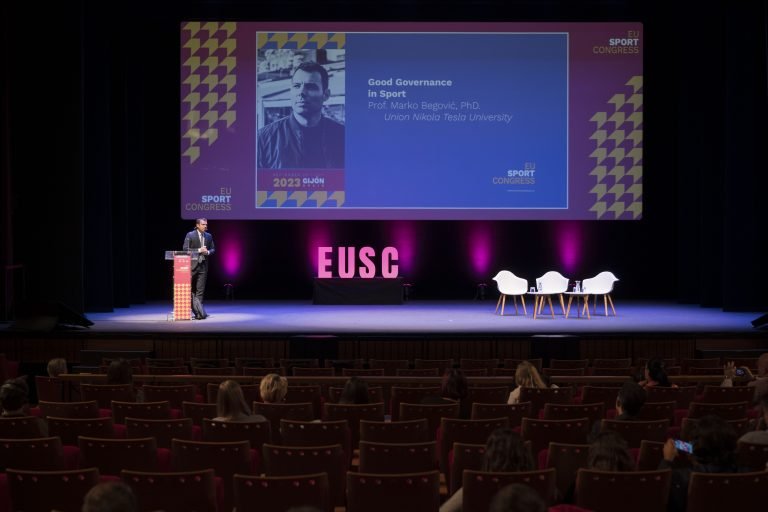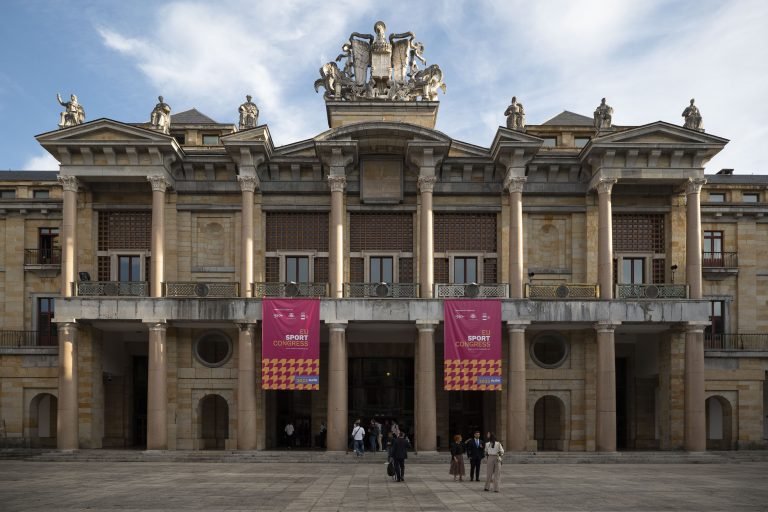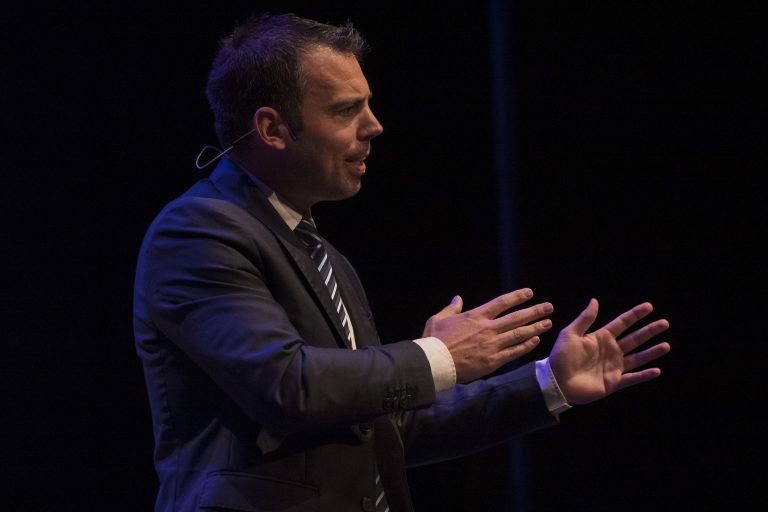
Dr. Begović’s Intervention At EUSC 2023: Redesigning The “European Model Of Sport”
About EUSC 2023
The EUSC 2023 took place in Gijón, Spain, spanning from September 20th to September 22nd. The European Sport Congress is an annual event that traverses various European regions, attracting a diverse array of stakeholders from the sports industry. The congress delves into the European viewpoint on sports, emphasizing the design and execution of innovative projects, and promoting the internationalization of sport-related institutions while fostering staff mobility.
In addition to the engaging physical event, the European Sport Congress also provides an online platform that extends the impact far beyond the conference’s duration. Participants can access the submitted communications for a year, allowing them to disseminate their project results and present their ideas on a long-lasting channel.
The prestigious event was made possible by the collaboration of key partners. The Municipality of Gijón played a crucial role as the representative of the hosting city, ensuring a warm welcome to participants. The University of Oviedo joined as the academic partner, contributing valuable knowledge and expertise. Lastly, the Spanish Olympic Committee served as the sport partner, further enhancing the congress’s significance within the sporting community.


Dr. Marko Begović’s Insights on Sport-Related Governance at the European Sport Congress
Good governance in sport
Dr. Marko Begović, an esteemed member of HERC’s Expert Group, made a thought-provoking intervention during his participation at the European Sport Congress. His lecture was scheduled for day two under the title of ”Good Governance in Sport”. Dr. Begović’s contribution served as a poignant historical reminder, shedding light on significant aspects of sport-related governance.
He emphasized that the very first organizer, known as “Fancy,” operated on an informal network dominated by aristocrats, characterized by a closed and hierarchical structure. This historical context highlighted the exclusivity and limited access to sport, as it primarily benefitted the privileged few.
Dr. Begović further delved into the subsequent emergence of amateurism as a concept promoted by the middle class. The intention behind this movement was to impose exclusivity on sports, thereby restricting leisure opportunities for the working class. This historical aspect underscored the social and class dynamics that shaped the development of sport and its accessibility.
In today’s contemporary setting, Dr. Begović cautioned against the limited progress made in learning from history. Challenges persist in the form of insufficient integrity and accountability within sport-related governance. This realization highlighted the need for comprehensive reforms to address these pressing issues.
At the European level, Dr. Begović emphasized the importance of initiating discussions and undertaking a redesign of the “European model of Sport.” He highlighted the existing hierarchical and pyramidal structure that remains predominant, limiting opportunities for key stakeholders, notably athletes, to actively participate in governing bodies and decision-making processes.

In a time when global liberties are being challenged, Dr. Begović advocated for greater democracy in Europe. This call for increased democratic practices within the realm of sports governance aimed to foster fairness, inclusivity, and enhanced representation for all stakeholders involved.
Dr. Marko Begović’s intervention evoked critical reflections and discussions among the participants at the European Sport Congress. His historical insights and forward-looking suggestions provided a valuable foundation for subsequent debates and deliberations surrounding the reform of sport-related governance structures.
